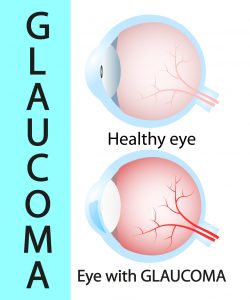 Could it be? Could the delicious sweetness of chocolate actually be good for you? The answer is yes, but in moderation. Chock full of antioxidants, this delicious treat may be able to help you combat heart disease. A recent study has shown that moderate consumption of chocolate can reduce risk of heart disease.
Could it be? Could the delicious sweetness of chocolate actually be good for you? The answer is yes, but in moderation. Chock full of antioxidants, this delicious treat may be able to help you combat heart disease. A recent study has shown that moderate consumption of chocolate can reduce risk of heart disease.
Where does chocolate come from?
Chocolate has been enjoyed for thousands of years as far back as the ancient Mayan and Aztec civilizations. They revered this delicious treat as the “food of the gods” and Central American Mayan Indians drank a spicy drink made from roasted cacao beans. Chocolate was enjoyed exclusively in this liquid form until Victorian times when it was devised as a solid food treat.
The basic form of solid chocolate is made from cocoa, cocoa butter from the cocoa bean, and sometimes up to 5-percent vegetable fat. More processed and lesser quality products will usually contain more fat and sugar and less cacao.
Chocolate and heart health
A recent meta-analysis study looked at 23 studies with over 400,000 adults, with 35,000 cases of heart disease. Study results show that eating chocolate in moderation may actually reduce heart disease risk. When talking about moderate consumption of chocolate, this study defines it as 100 grams of chocolate per week. This is equal to about 2 standard chocolate bars. When chocolate consumption exceeded 100 grams per week, chronic disease risk such as stroke risk and heart disease risk started to increase.
When choosing to consume chocolate as part of a heart healthy diet, be sure to look at the ingredients label. Try to choose chocolate foods that are lower in sugar and higher in cacao. This is because added fat and sugar can make chocolate higher in calories with no real added nutrient benefit.
A higher cacao content can increase the concentration of antioxidants in chocolate. Cacao beans contains antioxidants known as flavonoids that are also found in various fruits and vegetables. These antioxidants can help improve blood pressure as well as improve blood flow to the heart. This in turn can help reduce risk of heart disease and related chronic diseases. Therefore, lean towards higher cacao percentage (around 70-percent or higher) and lower sugar content for the most health benefit.
Other heart healthy tips
Besides eating chocolate for heart health reduction, which is perhaps the most delicious medicine ever, there are other steps you can take to reduce your risk.
- Eat plenty of colorful fruits and vegetables every day. This is because fruits and vegetables contain a slew of different antioxidants that can lower oxidative stress in the body’s cells. when you reduce the oxidative stress in the body, then you lower the risk of cell damage. When less cells are damaged, you can lower your chronic disease risk. Therefore, you should try to get at least 2 cups each of fruits and vegetables each day (or more!) for optimal health benefit. Also, add in more fruits and vegetables for in-between meal snacks instead of sweets to help increase your total fiber and nutrient intake daily.
- Stay active every day. This doesn’t mean you have to train for a marathon or attend boot camp classes. Just try to get your muscles moving every day by taking walks, going outside and gardening, or visiting your local community center for aerobic or dance classes each week. A healthy level of activity would be to get at least 30 minutes each day of moderate activity for at least 5 days a week. You can do this exercise in shorter segments. Five minutes here and ten minutes there all counts towards this 30 minutes. And moderate activity is any exercise that increases your rate of breathing a bit and where you can carry a conversation, but can’t sing.
- Take a heart healthy supplement each day. Sometimes the food you eat does not provide all the nutrients you need to stay your healthiest. In some cases, you may have vitamin deficiencies such as vitamin D or B12 deficiency that could affect your overall health status and well-being. That is why a multivitamin may be the right choice for you to help fill in the nutrition gaps. An example of a great multivitamin is Zestia by Vita Sciences. Zestia provides a comprehensive formula of 45 fruits and vegetables, a daily dose of a variety of essential vitamins and nutrients, as well as probiotics.
-written by Staci Gulbin, MS, MEd, RD, LDN
References:
Cadbury (accessed August 15, 2018) “What is chocolate?”
Ren, Y., et al (2018) “Moderate consumption of chocolate may reduce CVD risk.”
 A recent study of 2000 overweight men and women with prediabetes looked at the effects of a low-calorie diet. After eight weeks, the men in the study lost significantly more weight than women and had larger reductions in their metabolic score, which is a marker for diabetes. In addition, the men had greater loss of fat mass and lower heart rate after eight weeks on the diet. However, women did have the upper hand on some health markers. In fact, women had a larger reduction in hip circumference, lean body mass, and pulse pressure than men.
A recent study of 2000 overweight men and women with prediabetes looked at the effects of a low-calorie diet. After eight weeks, the men in the study lost significantly more weight than women and had larger reductions in their metabolic score, which is a marker for diabetes. In addition, the men had greater loss of fat mass and lower heart rate after eight weeks on the diet. However, women did have the upper hand on some health markers. In fact, women had a larger reduction in hip circumference, lean body mass, and pulse pressure than men. Probiotics are getting more press each and every day for their health benefits. From skin health, improving bone health, and of course, enhancing gut health, the possibilities seem endless. In fact, a recent study shows that combining a probiotic with breastfeeding in the first year of life can have improvements in the gut health of infants.
Probiotics are getting more press each and every day for their health benefits. From skin health, improving bone health, and of course, enhancing gut health, the possibilities seem endless. In fact, a recent study shows that combining a probiotic with breastfeeding in the first year of life can have improvements in the gut health of infants. What is glaucoma?
What is glaucoma? Night shifts, or working from evening to morning, can be rough on your body and mind. Your meal patterns can become confused. Sleeping patterns can become thrown off course. And in turn, weight gain and sleeping issues can develop over time. A recent study has found that night shifts can cause digestive problems over time by throwing off the body’s internal clock.
Night shifts, or working from evening to morning, can be rough on your body and mind. Your meal patterns can become confused. Sleeping patterns can become thrown off course. And in turn, weight gain and sleeping issues can develop over time. A recent study has found that night shifts can cause digestive problems over time by throwing off the body’s internal clock. Now you may be saying to yourself, “Another article telling me to eat vegetables.” :sigh: However, this is not just another one of “those” articles. There are more reasons to eat your veggies than you may think. Besides providing digestive-friendly fiber and antioxidants, a recent study has shown that eating a more plant-based diet can actually lower your heart and diabetes health numbers.
Now you may be saying to yourself, “Another article telling me to eat vegetables.” :sigh: However, this is not just another one of “those” articles. There are more reasons to eat your veggies than you may think. Besides providing digestive-friendly fiber and antioxidants, a recent study has shown that eating a more plant-based diet can actually lower your heart and diabetes health numbers. Probiotics have become the talk of the town, and for good reason. Every day more research shows that taking probiotics can reduce inflammation in the gut, and in turn, may help reduce risk of inflammatory conditions such as heart disease, eczema, and inflammatory bowel disease. Therefore, adding a probiotic to your daily routine may be the answer to help free your gut, and in turn your body, from inflammation.
Probiotics have become the talk of the town, and for good reason. Every day more research shows that taking probiotics can reduce inflammation in the gut, and in turn, may help reduce risk of inflammatory conditions such as heart disease, eczema, and inflammatory bowel disease. Therefore, adding a probiotic to your daily routine may be the answer to help free your gut, and in turn your body, from inflammation. Whether you walk, run, swim, cycle, or dance, exercise is a great way to keep your heart in tip top shape. Exercise is also recommended for weight loss, controlling blood glucose levels, and even for helping reduce stress by releasing endorphins. Recent research has shown that exercise may also be good for reducing inflammation in the body, and in turn reducing your risk for many chronic diseases.
Whether you walk, run, swim, cycle, or dance, exercise is a great way to keep your heart in tip top shape. Exercise is also recommended for weight loss, controlling blood glucose levels, and even for helping reduce stress by releasing endorphins. Recent research has shown that exercise may also be good for reducing inflammation in the body, and in turn reducing your risk for many chronic diseases. Heart disease is the leading cause of death for men and women in the United States. It accounts for one in four deaths each year. However, yo can prevent heart disease by changing some lifestyle factors to lower your risk. Risk factors of heart disease include poor diet, physical inactivity, being overweight or obese, being a smoker, and having diabetes. Fortunately, by working to change a few things in your daily routine, you can lower your risk of heart disease. Here are the top five things you can do today to lower your risk of heart disease.
Heart disease is the leading cause of death for men and women in the United States. It accounts for one in four deaths each year. However, yo can prevent heart disease by changing some lifestyle factors to lower your risk. Risk factors of heart disease include poor diet, physical inactivity, being overweight or obese, being a smoker, and having diabetes. Fortunately, by working to change a few things in your daily routine, you can lower your risk of heart disease. Here are the top five things you can do today to lower your risk of heart disease. When you don’t get enough sleep, it can affect your whole day. You may move slower, have less energy, your mind may have a hard time learning or remembering things, and you may be more easily stressed and irritated. In turn, these factors can affect your productivity during the day and the way you get along with others. Therefore, it is super important to get enough rest at night. And just when you thought that you were reaching your health goals, a new report states that eight hours a night of rest may not be enough.
When you don’t get enough sleep, it can affect your whole day. You may move slower, have less energy, your mind may have a hard time learning or remembering things, and you may be more easily stressed and irritated. In turn, these factors can affect your productivity during the day and the way you get along with others. Therefore, it is super important to get enough rest at night. And just when you thought that you were reaching your health goals, a new report states that eight hours a night of rest may not be enough.